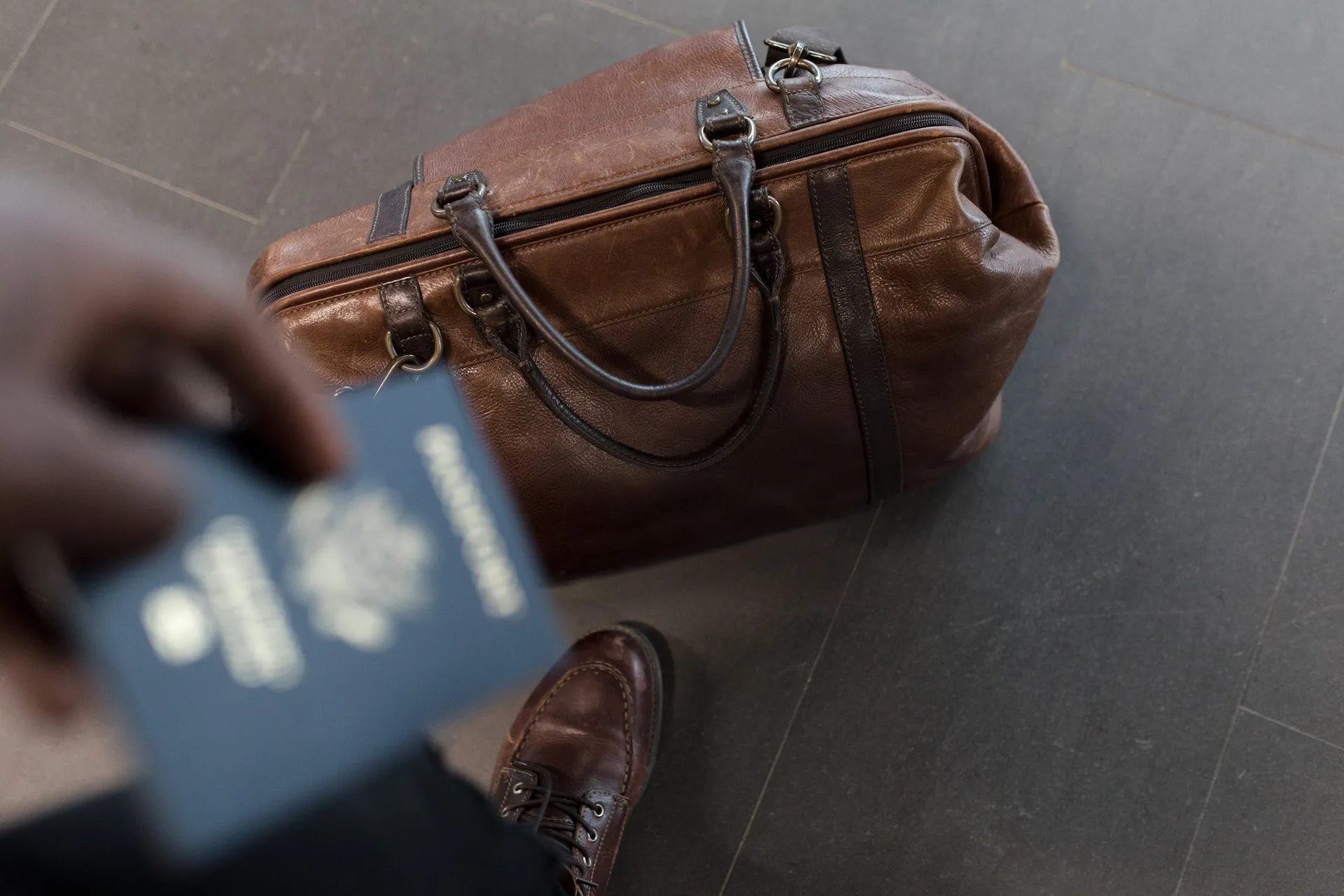Ireland Visa from UK
In most instances, British citizens will not require an Irish visa to travel to, visit, study, live or work on mainland Ireland – but there are exceptions for which formal travel permissions must be obtained.
IAS can help visa required nationals apply for the appropriate travel document, and support applicants through both application and appeal processes for Irish visas worldwide. Call our office today to discuss your needs on +44 (0)333 414 9244.
Read our 1001 reviews
Request a call back from our immigration experts
Benefits of Choosing IAS‘ Ireland Immigration Lawyers
When it comes to obtaining an Ireland visa or permit, IAS Ireland immigration lawyers are well-equipped to help you.
With IAS’ track record of successfully helping clients visit or immigrate to Ireland successfully, we can help you achieve your goal.
Our dedicated immigration lawyers provide our services through a comprehensive and personalised approach. With IAS, you enjoy:

Compassionate support from an experienced immigration lawyer dedicated to your success



Support in gathering supporting documents and completing a high-quality application.



Confidence that your case is being handled by an experienced team.



In-house document checks done by lawyers who are well-versed in Ireland immigration matters.
Services we Provide
Do I need a visa for Ireland from the UK?
Exactly who requires a visa to travel to Ireland is dependent on the citizenship and the circumstances of the individual travelling.
British citizens do not require a visa to visit Ireland, as the UK and Ireland are considered the Common Travel Area (CTA). This allows for visa-free travel and no residency permit required for Irish citizens to live, work or study in the UK or vice versa. Partially, this is due to the ‘soft’ border between Northern Ireland and Ireland, which does not hold the requirement for any passport or travel document presentation for British or Irish citizens travelling across it.
However, there are exceptions for which those in the UK will need to apply for a visa or travel permission document to travel to Ireland. This includes:
- Non-UK citizens who do not qualify for either the short stay visa waiver or the British Irish Visa Scheme
- Non-UK citizens in the UK who are travelling to Ireland:
- to volunteer
- as a minister of religion
- as the de facto partner of an Irish citizen
- as a family member of a UK citizen
- as the de facto partner of a Critical Skills Employment Permit or Hosting Agreement holder.
- Individuals in the UK who do not hold a full British passport or have a passport as a ‘British Protected Person’.
- Any other non-UK citizen who is from a visa-required country for Ireland
It can be difficult to identify whether or not you’re eligible for an Irish visa, as there are a few complexities and idiosyncrasies to the rules. To be sure you know what you need and what you don’t, call +44 (0)333 414 9244 to speak to a IAS immigration specialist.
Visas for Ireland from UK
There are nine main visa types for short stay and long stay travel permission to and within Ireland, for which those in the UK may need to apply for. These are:
- Short Stay Visas
- Visit Visa – also known as a ‘Short Stay C Visa’, this allows for holidays or short stays in Ireland for up to 90 days;
- Business Visa – allows for working in Ireland for periods of up to 90 days;
- Conference Visa – allows for attendance at a conference, symposium or other event in Ireland for up to 90 days;
- Exam or Interview Visa – allows for the sitting of an exam, professional evaluation or job interview process in Ireland with a stay of no longer than 90 days;
- Performance Visa – allows for the staging or participation in a performance or tournament in Ireland for up to 90 days.
- Long Stay Visas
- Employment Visa – allows for an individual to take up gainful employment in Ireland for up to five years, dependent on employment type (and only following the grant of an Employment Permit from the Department of Enterprise, Trade and Employment)
- Join Spouse (Employment Permit) – allows for an individual to live in Ireland alongside their spouse who is either an Irish citizen or holds legal permission to reside there. Visa holders may also gain an Employment Permit to allow for employment in the country
- Student Visa – allows for an individual to study at an Irish educational establishment for a period of up to five years, dependent on the qualification
- Join Family Visa – allows for an individual to live in Ireland alongside their immediate family member/s who is/are either an Irish citizen or holds legal permission to reside there.
Each visa type holds its own specific eligibility criteria. For advice on understanding which visa type is most appropriate for you, call IAS on +44 (0)333 414 9244.
General Requirements for an Ireland Visa
The specific requirements for an Irish visa will vary based on your specific visa, what it will allow you to do in Ireland and your personal circumstances.
However, the following requirements may generally apply when applying for an Irish visa. You may:
- Have to be 18 or over (unless applying for a specific child or minor visa)
- Show proof of a valid passport or other travel document
- Show proof of valid medical insurance
- Have a letter of application
- Provide details of your immigration history and/or any previous visa refusals
- Show evidence of finances or other proof that you can support yourself financially in Ireland
- Proof that you meet the requirements set out for your specific visa
Ireland Visa Application Process
If an Irish visa is required for an individual to enter, live, work, study or visit Ireland, the applicant will need to undergo the visa applications process. The exact steps may vary dependent on the visa type and the applicant’s circumstances, but generally speaking the following applies:
Identify Irish visa type required
It’s critical that applicants understand which visa type is not just applicable but most appropriate for them. Applying for the wrong visa will simply result in a refusal and delay travel. Call +44 (0)333 414 9244 to double check that you are applying for the correct visa for you.
Check Irish Visa Waiver Programme
The Irish Visa Waiver Programme and British Irish Visa Scheme (BIVS) may mean that visa applicants are not required to file a visa application to enter Ireland. This should be verified before any visa application is filed.
Collate supporting documentation
Every visa application requires the submission of supporting documentation to demonstrate the applicant’s eligibility. These vary somewhat dependent on the visa type, and an Irish Visa Office reserves the right to require further documentation during the application processing period. In most cases, the following documents are required for submission:
- A valid passport from the applicant’s home country
- Two clear and recent passport photographs
- Proof of travel reservations
- Proof of income
- (For study visas) Proof of enrolment into an Irish educational establishment
- (For employment visas) Proof of employment with an Irish company
- (For family reunification visas) Proof of relation.
It is critical that these documents are compiled ahead of the visa application form being processed as they are to be provided immediately upon its filing.
File visa applications form online and pay visa application fee
All Irish visa application forms are filed online on the Irish Government website. The form must be completed accurately and wholly, and the relevant visa application fee paid digitally.
Send supporting documentation to relevant visa office
Once the visa application form has been filed, the website will inform the visa applicant of where to send their supporting documents. This is usually a local Irish visa office, embassy or consulate.
Below is a list of Irish visa offices in the UK:
- London – Irish Visa Application Centre, 66 Wilson Street, EC2A 2BT
- Manchester – Irish Visa Application Centre, 50 Devonshire Street North, M12 6JH
- Birmingham – Irish Visa Application Centre, 5 -14 South Road, B67 7BN
- Edinburgh – Irish Visa Application Centre, 1 Rennie’s Isle, EH6 6QT
- Cardiff – 19 Newport Road, Cardiff, Wales, CF24 OAA
Attend visa office for interview (if required)
In some cases, the Irish immigration authorities may require further information or the provision of biometric information for the issuance of a biometric residence permit. The visa applicant will be invited to an interview appointment at their local Irish consulate, embassy or visa office.
Await visa decision
Once the Irish immigration authorities have all of the relevant information, they will set about to process the visa application and give a decision. This will usually be in writing, with the supporting documents returned to the applicant.
Travel to Ireland!
Once a valid visa has been granted, the visa holder may travel to Ireland.
Ireland Visa Processing Time from UK
The Irish visa processing system is fairly swift compared to many nations, thanks to its online application forms. While there are a variety of factors that can result in the delay of a visa decision (including requests for an interview at a visa office or further documentation supply), those being processed by an Irish embassy or consulate can be managed within 10 working days if the application is straightforward. However, visa processing times can be affected by seasonal demand and so it is best to enquire with the relevant authority at the time of application to ensure no undue delay.
Ireland Visa Fees from UK
All Irish visas are subject to the payment of an application fee. Upon cleared payment of the fee, the application will be processed. As of 2025, these fees are:
- €60 for a single-entry Visit visa
- €100 for a multiple-entry Visit visa
- €25 for a transit visa.
Visa application fees are non-refundable in the event of a visa refusal. However, there are several countries’ nationals which are exempt from paying any visa fees for Ireland – so if you’re in the UK but hold citizenship of one of the following territories, you may apply for a visa without charge:
- Bosnia and Herzegovina
- Cote d’Ivoire
- Ecuador
- Indonesia
- Jamaica
- Kosovo
- Kyrgyzstan
- Montenegro
- Morocco
- North Macedonia
- Peru
- Serbia
- Sri Lanka
- Tunisia
- Uganda
- Zambia.
Visa fees may also be waived if applicants applying from the UK meet any of the following criteria:
- The applicant is a family member of an Irish citizen
- The applicant is a family member of an EU/EEA/Swiss citizen who benefits from the Free Movement Directive
- The applicant holds citizenship or dual citizenship from a country on the Irish Short Stay Visa Waiver Programme
- The applicant holds a diplomatic or service passport and is travelling to Ireland in an official capacity
- The applicant is a Programme Refugee.
Ireland Visa Refusal and Appeal
Irish immigration authorities reserve the right to refuse any visa application, but in most instances give recourse to appeal. Details of any valid appeal procedure will be supplied in writing along with the decision for the initial visa refusal. IAS can help applicants navigate the appeals process – call +44 (0)333 414 9244 for more information on how.
If a visa application is refused because false or misleading information has been provided in the application, there is likely to be no recourse to appeal and the applicant may be banned from applying for another visa for a period of up to five years. Repeated offences could result in an outright travel ban from the country.
Short Stay Visa Waiver
The UK Short Stay Visa Waiver programme permits citizens of a number of countries who are already present in the UK to travel to Ireland without applying for a separate Irish Visa.
Nationals of the following countries are eligible for the Short Stay Visa Waiver Scheme:
- Bahrain
- Bosnia and Herzegovina
- Colombia
- Indonesia
- Kazakhstan
- Kosovo
- Kuwait
- Montenegro
- North Macedonia
- Oman
- Peru
- Philippines
- Qatar
- Saudi Arabia
- Serbia
- Thailand
- Turkey
- Ukraine
- Uzbekistan
- Vietnam.
The British Irish Visa Scheme (BIVS)
Similarly, citizens of India and China may travel without a separate visa into Ireland provided they have a valid short stay UK Visa. This visa must, however, be endorsed with a ‘BIVS’ stamp; which is determined by an immigration officer upon the visa applicant’s entry to the UK.
If, for whatever reason, immigration authorities choose to grant a UK short stay visa without the further BIVS accreditation, the traveller will need to apply for a separate visa for their Irish travel.
Pre-clearance requirements
There are some instances in which no individual or separate Irish visa is required for travel to Ireland, but the individual must apply for ‘pre-clearance’. Pre-clearance provides permission for the individual to enter Ireland either through a port or airport and grants permission for their residence on Irish soil.
If the visa applicant is intending to live in Ireland to do any of the following, they must apply for pre-clearance:
- to volunteer
- as a minister of religion
- as the de facto partner of an Irish citizen
- as a family member of the UK citizen
- as the de facto partner of a Critical Skills Employment Permit or Hosting Agreement holder.
Applying for pre-clearance is a slightly different process to visa applications, but IAS can help navigate you through it. Call our office on +44 (0)333 414 9244 to learn more.
How can IAS help you?
IAS are a firm of expert immigration solicitors who work daily to help individuals, families and businesses obtain the necessary passports, travel documents and visas to visit, live, work and study worldwide. Our UK office works with residents all across the globe to help them apply for and appeal travel permissions – wherever it is they’re headed.
Our team are contactable on +44 (0)333 414 9244 for a free chat with no obligation to proceed. We approach every case individually and appreciate the idiosyncrasies and complexities of immigration law, so know exactly how to best to ensure success for all. Get in touch today to begin your journey to the Emerald Isle.
Table of Contents
Table of Contents will appear here.Legal Disclaimer
The information provided is for general informational purposes only and does not constitute legal advice. While we make every effort to ensure accuracy, the law may change, and the information may not reflect the most current legal developments. No warranty is given regarding the accuracy or completeness of the information, and we do not accept liability in such cases. We recommend consulting with a qualified lawyer at Immigration Advice Service before making any decisions based on the content provided.
Frequently Asked Questions
There are some instances in which individuals holding British nationality may need to apply for a formal visa to come to Ireland. If you’re unsure of what travel permissions you need as a British citizen, seek legal advice on +44 (0)333 414 9244.
Where biometric data is requested for the purposes of issuing a biometric residence permit, both fingerprints and a photograph will be taken at a visa application centre, embassy or consulate.
There are five Irish visa application centre locations in the UK. All allow for walk-in appointments every weekday between 08:30-11:00, and can be found in London, Birmingham, Manchester, Cardiff and Edinburgh. These centres are managed by a third party company known as VFS Global.


What our clients are saying
How our UK Immigration Lawyers can help
At the Immigration Advice Service our lawyers specialise in a wide range of UK visas, nationality and asylum applications and have represented clients in various successful complex and high-profile cases.















